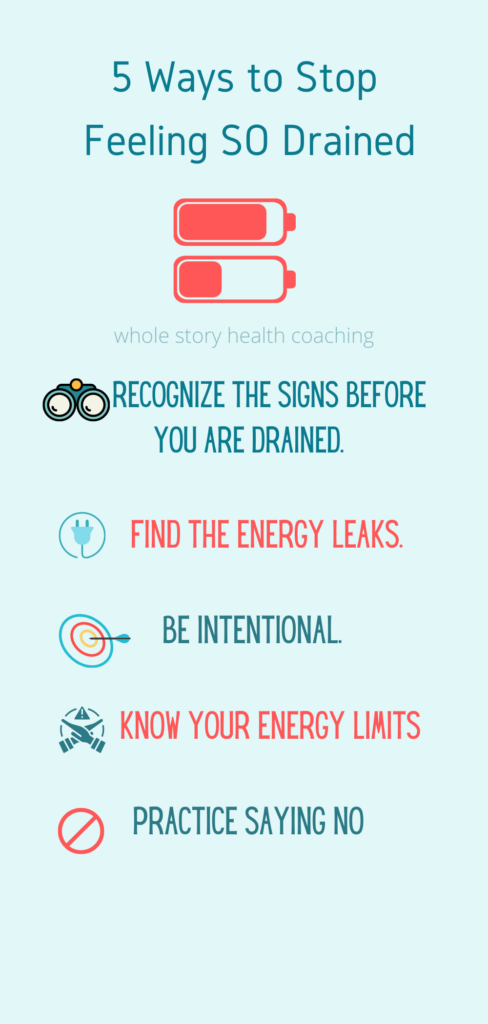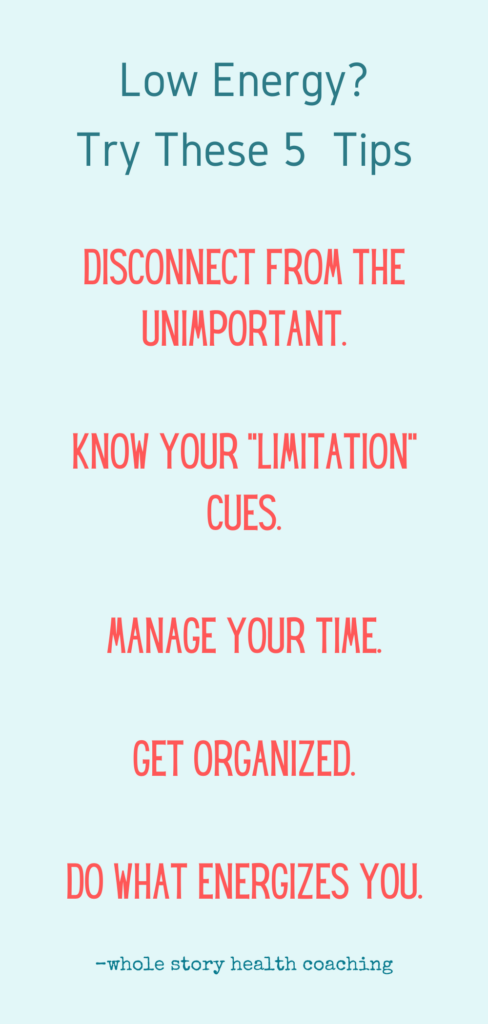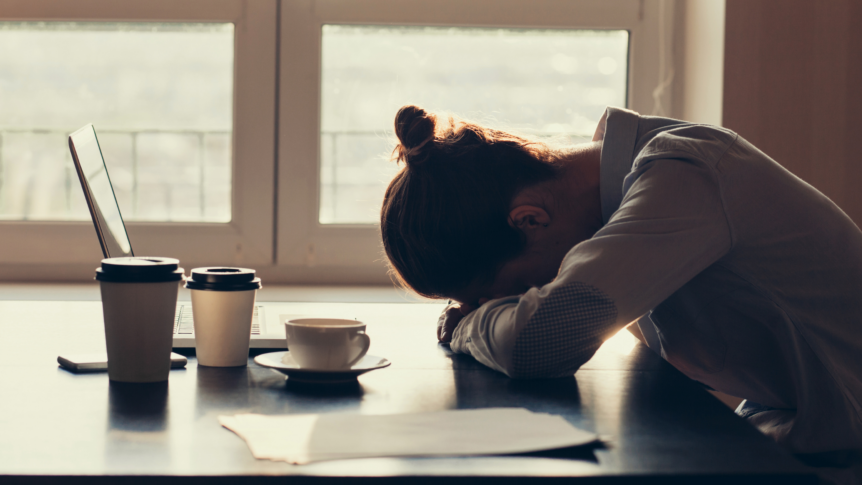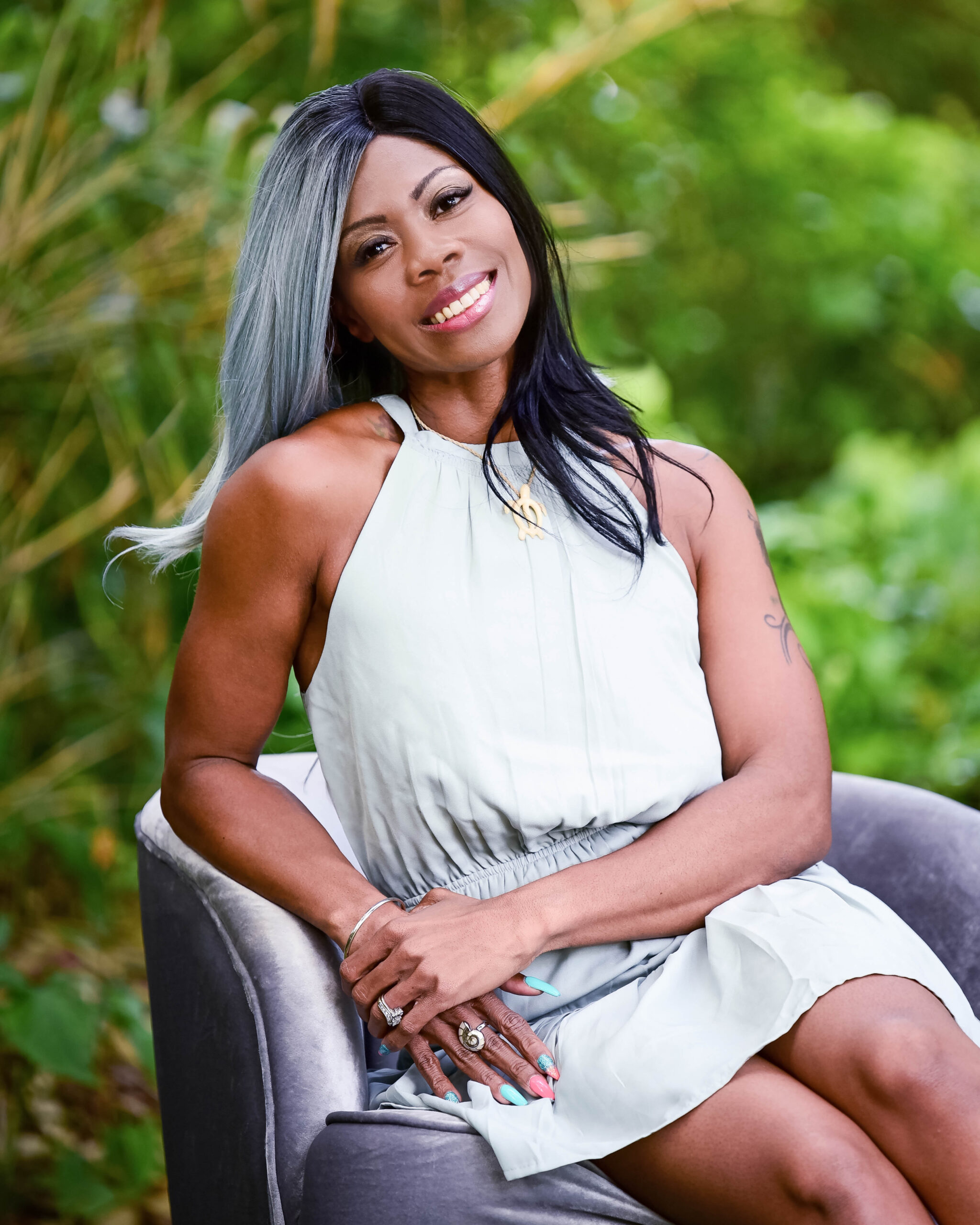During one stress filled period, I was so burned out, my only option was to unplug. This meant cutting back on friendships, social media, and anything that was depleting me beyond what I could replenish. I didn’t shut down completely, but I was close.
The reality is that life can leave us fatigued, overwhelmed, frustrated, and struggling to get through the day. Though we may keep going, we will have physical, emotional, and mental consequences.
Unplug the Energy Drains
So, what do we do when the stresses of our often-multitasked lives cause mental wear and tear that leaves us existing as a shell of who we have the potential to be? We take a step back to gain perspective—because we can’t unplug what we don’t understand is a problem.
Below are some steps we can take to regain control of our energy, health, and lives.

Recognize
At 20% and 10%, my phone alerts me to the option of switching to low power mode. It isn’t until I swipe away the battery drains that I realize just how many there are. Though some of them require more power than others, ALL of them are depleting it.
Normally that’s not a big deal — especially when I have the opportunity to just plug it in. The problem is having a low battery when there’s nothing I can do to recharge it.
Like our phones, recognizing when we are being drained gives us the opportunity to fix the energy leak and recharge before it’s too late.
Find the sources
If our days were broken down into various apps, it would look similar to this:
- Work
- Friends and family
- Relationships
- Home
- Miscellaneous
Imagine all of those being open—with more running in the background.
Each area places demands on our time and energy. Some (work, family, and home) cannot be closed. But there are other (miscellaneous) areas that will require us to take a long hard look to determine where the energy leaks are. From there, we can begin to decrease (or eliminate) the power going to them.
Be intentional
When we prioritize our lives and set detailed intentions for our day, it’s easier to discern where we need to direct our energy, rather than using it on anything (or anyone) that pops up. This intentionality gives us a choice and restores our control.
Know your energy limits
The ability to grasp that we must begin to limit someone’s use of us means recognizing our boundaries and adhering to them. That’s not always an easy process. Sometimes, it requires stepping back from friends, family members and even certain situations. Knowing and honoring our energy limits are forms of self-care.
Practice saying “No”
This was a difficult one for me because of my past struggles with codependency and people pleasing. Saying no felt like turning my back on someone. In reality, saying yes was turning my back on myself… especially when I was already running on empty.
Disconnect
Sometimes we feel that we have to stay connected to:
- people
- social media
- news
- politics
But we don’t, we choose to stay connected— and that connection comes at a cost. It’s up to us to look at the things we are connected to and determine how much of a drain they are. I unplugged from what was draining me to plug into what would energize me.

Understand the concept of importance
When we don’t have the ability to prioritize, we overload our circuits and are no longer capable of figuring out what or who to unplug from our power source. We can get so caught up in responding to everything — the truly important things are lost in the mix.
Being able to determine what is truly important is a skill that must be practiced.
Know your cues
I used to wish that humans were equipped with the same warnings as our devices. Then I realized that we are. We just have to learn to pay attention to our personal cues. Irritability? Check. Loud deep sighs? Check. Shutting down in 5..4…3…2…1? Check. This pattern always lets me know that it’s time to take a break — time to create some distance and recharge. Learn what your cues are and how to tune into them before low power mode kicks in.
Manage your time
One of my favorite productivity books suggests being ruthless with our time. This means cutting the power to anything that does not serve us. It may sound harsh to some, (it did to me) but eliminating the distractions actually benefits us in the long run. We are less pressed for time, less overwhelmed, and more able to focus. We can decrease our stress and improve (all aspects) of our health.
Organize
Organizing our workspaces and our day is imperative. As someone with ADHD, who has struggled (for a lifetime) with organization, I recognized that the clutter was having a negative impact on my productivity and mental and emotional wellbeing. Although it took a while to find something that worked, I eventually (and slowly) began to declutter, organize, become more productive, more efficient, and less stressed.
Find your energy source(s)
What energizes you? Exploring the answer to this question can yield quite a bit of valuable information. When combined with finding and eliminating your drains , you will notice that life feels a lot less overwhelming and more fulfilling.


